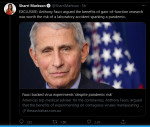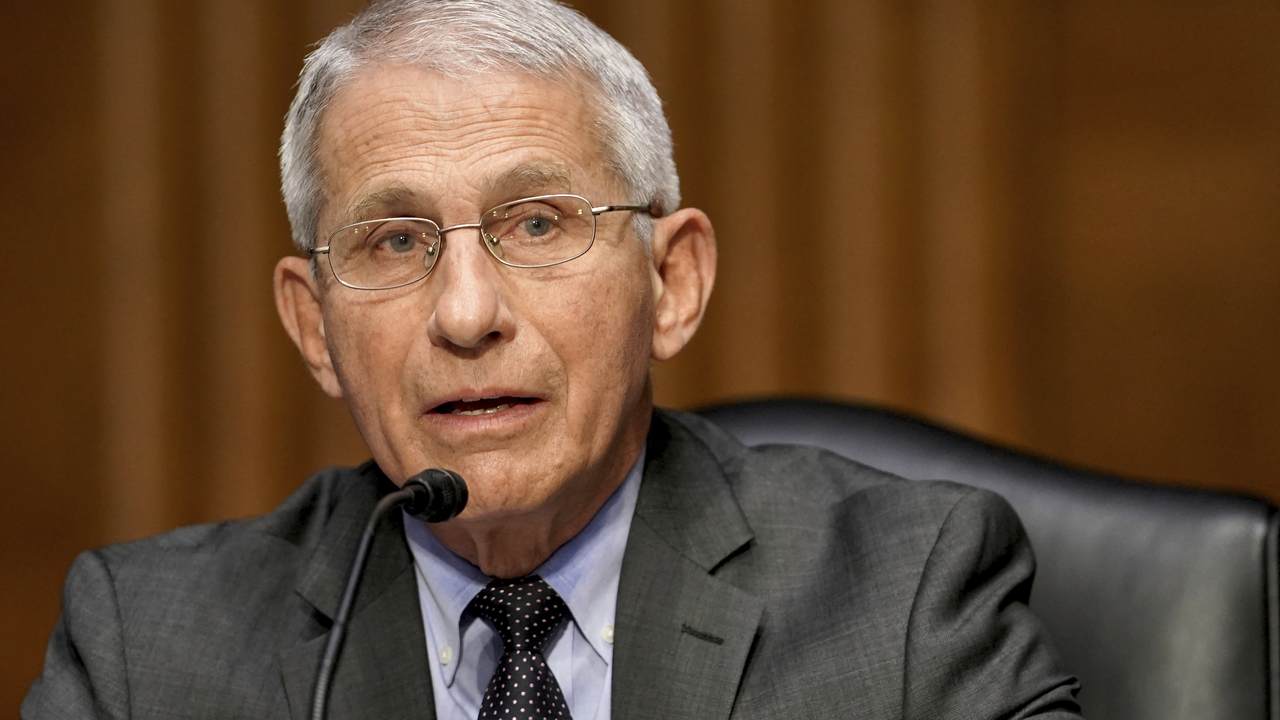Cacheman
Ultra MAGA!
Bombshell: Fauci Said Risk of Manipulating Bat Viruses Was Worth a Potential Pandemic by Katie Pavlich
Katie Pavlich
3 minutes

Things keep getting worse for NIH Director Dr. Anthony Fauci, who continues to say during testimony on Capitol Hill that he didn't fund Frankenstein gain-of-function research at the Wuhan Institute of Virology.
According to The Weekend Australian, Fauci wrote in 2012 that continuing dangerous gain-of-function research was worth the risk of a pandemic.

After telling Republican Senator Rand Paul two weeks ago that he "never" approved grant funding through the NIH for gain-of-function research at the Wuhan Institute of Virology, Fauci changed his tune this week and said he simply told Chinese Communist Party controlled scientists not to conduct the research.
From Fauci's exchange with Republican Senator John Kennedy:
Katie Pavlich
3 minutes

Things keep getting worse for NIH Director Dr. Anthony Fauci, who continues to say during testimony on Capitol Hill that he didn't fund Frankenstein gain-of-function research at the Wuhan Institute of Virology.
According to The Weekend Australian, Fauci wrote in 2012 that continuing dangerous gain-of-function research was worth the risk of a pandemic.
In previously unreported remarks, Dr Fauci supported the contentious gain-of-function experiments that some now fear might have led to an escape from a Wuhan laboratory causing the Covid-19 pandemic, calling them “important work”.
An investigation by The Weekend Australian has also confirmed Dr Fauci, the director of the National Institute of Allergy and Infectious Diseases, did not alert senior White House officials before lifting the ban on gain-of-function research in 2017.
Writing in the American Society for Microbiology in October 2012, Dr Fauci acknowledged the controversial scientific research could spark a pandemic.
“In an unlikely but conceivable turn of events, what if that scientist becomes infected with the virus, which leads to an outbreak and ultimately triggers a pandemic?” he wrote. “Many ask reasonable questions: given the possibility of such a scenario – however remote – should the initial experiments have been performed and/or published in the first place, and what were the processes involved in this decision?
“Scientists working in this field might say – as indeed I have said – that the benefits of such experiments and the resulting knowledge outweigh the risks.

After telling Republican Senator Rand Paul two weeks ago that he "never" approved grant funding through the NIH for gain-of-function research at the Wuhan Institute of Virology, Fauci changed his tune this week and said he simply told Chinese Communist Party controlled scientists not to conduct the research.
From Fauci's exchange with Republican Senator John Kennedy:
Kennedy: “Here’s where I’m getting at: You gave them money, and you said, ‘Don’t do gain-of-function research.’”
Fauci: “Correct.”
Kennedy: “And they said, ‘We won’t.’”
Fauci: “Correct.”
Kennedy: “And you have no way of knowing whether they did or not, except you trust them. Is that right?”
Fauci: “Well, we generally always trust the grantee to do what they say, and you look at the results—”
RT 5:52Kennedy: “Have you ever had a grantee lie to you?”
Fauci: “I cannot guarantee that a grantee has not lied to us because you never know.”







